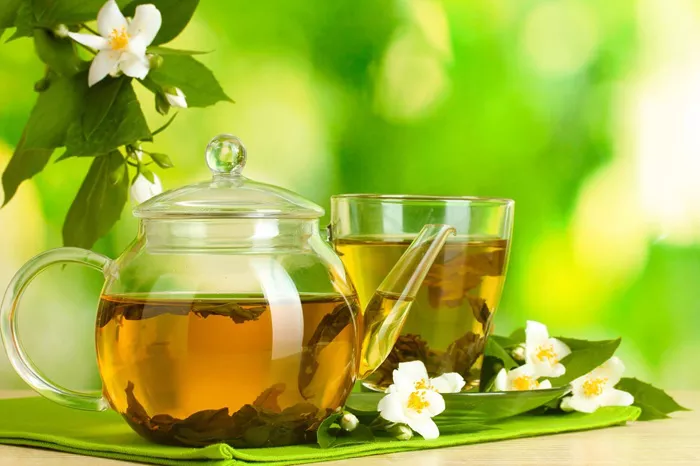Sinus allergies, characterized by symptoms such as nasal congestion, sneezing, itching, and sinus pressure, can be a source of discomfort and frustration for many individuals. While over-the-counter medications and nasal sprays are commonly used to alleviate symptoms, some people turn to natural remedies such as tea to help relieve sinus congestion and promote sinus health. In this article, we’ll explore the benefits of tea for sinus allergies and highlight some of the best tea options for sinus relief.
Understanding Sinus Allergies
Before delving into tea remedies, it’s essential to understand the underlying causes and symptoms of sinus allergies. Sinus allergies, also known as allergic rhinitis, occur when the body’s immune system overreacts to allergens such as pollen, dust mites, pet dander, or mold. When exposed to these allergens, the immune system releases histamines, triggering inflammation and irritation in the nasal passages and sinuses.
Common symptoms of sinus allergies include:
1. Nasal congestion
2. Sneezing
3. Runny or stuffy nose
4. Itchy or watery eyes
5. Sinus pressure or pain
6. Postnasal drip
While over-the-counter antihistamines and decongestants can provide temporary relief from sinus allergy symptoms, some individuals prefer to explore natural remedies such as herbal teas for a gentler approach to symptom management.
Benefits of Tea for Sinus Allergies
Tea has been used for centuries in traditional medicine systems for its therapeutic properties, including its ability to soothe inflammation, relieve congestion, and support immune function. When it comes to sinus allergies, certain types of tea may offer specific benefits for alleviating symptoms and promoting sinus health:
Anti-inflammatory Properties: Many herbal teas contain compounds with anti-inflammatory properties that can help reduce inflammation in the nasal passages and sinuses, easing congestion and discomfort.
Antioxidant Activity: Tea is rich in antioxidants, which can help neutralize free radicals and reduce oxidative stress in the body. By supporting overall immune function, antioxidants may help reduce the severity and duration of sinus allergy symptoms.
Mucolytic Effects: Some herbal teas have mucolytic properties, meaning they can help thin mucus and promote its expulsion from the respiratory tract, relieving nasal congestion and facilitating easier breathing.
Hydration: Drinking plenty of fluids, including tea, is essential for maintaining hydration and keeping mucous membranes moist, which can help alleviate dryness and irritation in the nasal passages and throat.
Best Tea Options for Sinus Allergies
When selecting teas for sinus allergy relief, it’s essential to choose varieties that are caffeine-free and non-irritating to the sinuses. Here are some of the best tea options for sinus allergies, along with their potential benefits:
Peppermint Tea: Peppermint tea contains menthol, a compound known for its cooling and soothing effects on the respiratory tract. Peppermint tea may help relieve nasal congestion, soothe sinus pressure, and promote easier breathing. Additionally, peppermint tea has anti-inflammatory and antimicrobial properties that can help reduce inflammation and fight off respiratory infections.
Chamomile Tea: Chamomile tea is renowned for its calming and anti-inflammatory properties, making it an excellent choice for soothing irritated nasal passages and sinuses. Chamomile tea may help reduce nasal congestion, relieve sinus pressure, and promote relaxation, making it especially beneficial for bedtime consumption.
Ginger Tea: Ginger tea has long been used in traditional medicine for its potent anti-inflammatory and immune-boosting properties. Ginger tea may help reduce sinus inflammation, alleviate nasal congestion, and support overall immune function. Additionally, ginger tea has warming properties that can help promote circulation and relieve sinus pressure.
Eucalyptus Tea: Eucalyptus tea is derived from the leaves of the eucalyptus tree, which are rich in compounds called cineole and menthol. These compounds have expectorant and decongestant properties, making eucalyptus tea effective for thinning mucus, relieving nasal congestion, and promoting clearer breathing. Additionally, eucalyptus tea has antimicrobial properties that can help fight off respiratory infections.
Nettle Tea: Nettle tea is made from the leaves of the stinging nettle plant, which is rich in bioactive compounds such as flavonoids and polyphenols. Nettle tea has anti-inflammatory and antihistamine properties that can help reduce nasal congestion, sneezing, and itching associated with sinus allergies. Additionally, nettle tea is a natural diuretic, which may help reduce fluid retention and relieve sinus pressure.
Turmeric Tea: Turmeric tea is made from the rhizome of the turmeric plant, which contains curcumin, a potent anti-inflammatory compound. Turmeric tea may help reduce inflammation in the nasal passages and sinuses, alleviate nasal congestion, and promote sinus drainage. Additionally, turmeric tea has antioxidant properties that can help support overall immune function and reduce oxidative stress.
Tips for Brewing and Enjoying Tea
To maximize the benefits of tea for sinus allergies, consider the following tips for brewing and enjoying your favorite varieties:
Use Filtered Water: Start with fresh, filtered water to brew your tea, as the quality of the water can impact the taste and aroma of the tea.
Steep Properly: Follow the recommended steeping times and temperatures for each type of tea to extract the optimal flavor and beneficial compounds. Oversteeping can result in a bitter taste, while understeeping may not fully release the tea’s medicinal properties.
Add Honey or Lemon: Enhance the flavor of your tea and provide additional soothing benefits by adding a teaspoon of honey or a squeeze of lemon juice. Honey has antimicrobial properties and can help soothe a sore throat, while lemon provides vitamin C and adds a refreshing citrus flavor.
Inhale Steam: To further relieve nasal congestion and sinus pressure, inhale the steam rising from your cup of hot tea. Cover your head with a towel and lean over the cup, taking slow, deep breaths to inhale the steam.
Stay Hydrated: In addition to drinking tea, be sure to stay hydrated throughout the day by drinking plenty of water. Hydration is essential for thinning mucus, promoting sinus drainage, and supporting overall respiratory health.
Conclusion
Tea offers a soothing and natural approach to managing sinus allergies, providing relief from symptoms such as nasal congestion, sinus pressure, and inflammation. By selecting caffeine-free herbal teas with anti-inflammatory, antioxidant, and mucolytic properties, individuals can support sinus health and alleviate discomfort associated with allergic rhinitis. Whether enjoyed hot or cold, tea can be a comforting and beneficial addition to a holistic approach to managing sinus allergies. As always, it’s essential to consult with a healthcare professional before incorporating new remedies into your routine, especially if you have any underlying health conditions or are taking medications.
[inline_related_posts title=”You Might Be Interested In” title_align=”left” style=”list” number=”6″ align=”none” ids=”8962,8894,8890″ by=”categories” orderby=”rand” order=”DESC” hide_thumb=”no” thumb_right=”no” views=”no” date=”yes” grid_columns=”2″ post_type=”” tax=””]

































